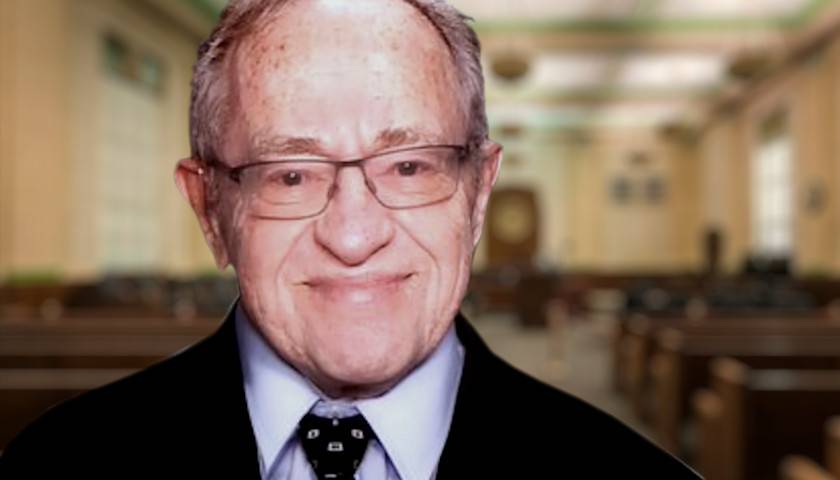by Alan Dershowitz
Former President Donald Trump has been charged with a variety of crimes, including violation of the misnamed Espionage Act.
That 1917 statute is misnamed because it covers a great many offenses that don’t involve spying or giving secrets to the enemy. In fact, over the years it has been used extensively against patriotic Americans who have opposed wars and dissented from other government actions.
In Trump’s case, he is being accused primarily of unlawful possession of allegedly classified material.
But because he has been charged under the Espionage Act, many people have been misled into believing the accusations against him have something to do with espionage, spying or even treason.
 The use of the term espionage is extremely prejudicial to Trump in the court of public opinion. It would be even more prejudicial in a court of law if the jury were to hear that word in connection with his case.
The use of the term espionage is extremely prejudicial to Trump in the court of public opinion. It would be even more prejudicial in a court of law if the jury were to hear that word in connection with his case.
Accordingly, Trump’s lawyers should immediately move for what’s called a motion in limine prohibiting the use of the word espionage by prosecutors, either inside the courtroom or outside it, but especially in front of the jury.
“Espionage” has no relevance to the upcoming trial. It associates Trump with some of the worst offenses imaginable.
Julius and Ethel Rosenberg were executed for espionage. Several former government officials have served long terms for espionage.
Those defendants actually provided classified and other secret information to our enemies. Trump should not be painted with that invidious brush, based on the evidence in his case.
It’s common for judges to prohibit prosecutors from using prejudicial terms in front of the jury.
The judge generally weighs the probative versus the prejudicial impact. In criminal cases, judges should always err on the side of protecting the rights of defendants.
This is not a hard case for barring the use of the term espionage, since it has little or no probative effect and a vast potential for prejudice. That the name of the statute uses the word is no excuse to let the prosecution use it. Often statutes have broad names that have little or nothing to do with the charges in a particular case.
Imagine this hypothetical: Congress passes a statute and entitles it “The Protection Against Child Molestation and Insider Trading Act.”
Should prosecutors be allowed to mention the first part of that statute in a case that does not involve child molestation? Of course not.
Nor should the prosecution in this case be allowed to mention the word espionage, even though Congress misnamed the statute with that loaded term.
For this case, the law should be referred to only by mentioning the allegedly unlawful possession of classified material. That is the essence of this prosecution, and the defendant should not be prejudiced by reference to other aspects of the statute that have no direct bearing on this case.
It’s not too early for the defense to file this motion or for the court to grant it. Already, Trump has been prejudiced by media references to the law’s “espionage” title.
The court can’t stop the media from using that word, but by explicitly ruling it out of the trial, it can have an impact on public opinion and thus on the potential jury pool.
Espionage is a word that denotes some of the most evil intentions on the part of those accused of it. The impact could be subtle, even unconscious, but it is real.
The government would suffer no prejudice from a ban on the term in court. It can still argue Trump’s actions may have endangered our national security, but it won’t have the help of a misnamed statute.
True, any improper possession of highly classified material may pose some danger to national security if it gets into the wrong hands.
But that would be true as well of the improper possession and use of classified material by others who have not been charged, such as President Joe Biden, Vice President Mike Pence and former presidential candidate Hillary Clinton.
The American public has the right to judge how serious these dangers were in each case, but its judgment shouldn’t be influenced by prosecutors throwing around the word espionage just because it’s in the statute.
Indeed, the media themselves should be more responsible and explain that the charges are under provisions of the statute that have nothing to do with spying.
In any trial of Donald Trump, there will be prejudice on both sides. He is hated and loved by people who have already chosen sides.
It’ll be hard enough to select jurors who are able to consider the evidence without predispositions and prejudices. The court should go out of its way to reduce those risks to a fair trial.
Among the ways to do that is to eliminate all reference to the word espionage in the courtroom.
– – –
Alan Dershowitz is professor emeritus at Harvard Law School and the author of “Get Trump,” “Guilt by Accusation” and “The Price of Principle.” Andrew Stein, a Democrat, served as New York City Council president, 1986-94. This is republished from the Alan Dershowitz Newsletter.
Photo “Alan Dershowitz” by Alan Dershowitz. Background Photo “Courtroom” by Carol M. Highsmith.




